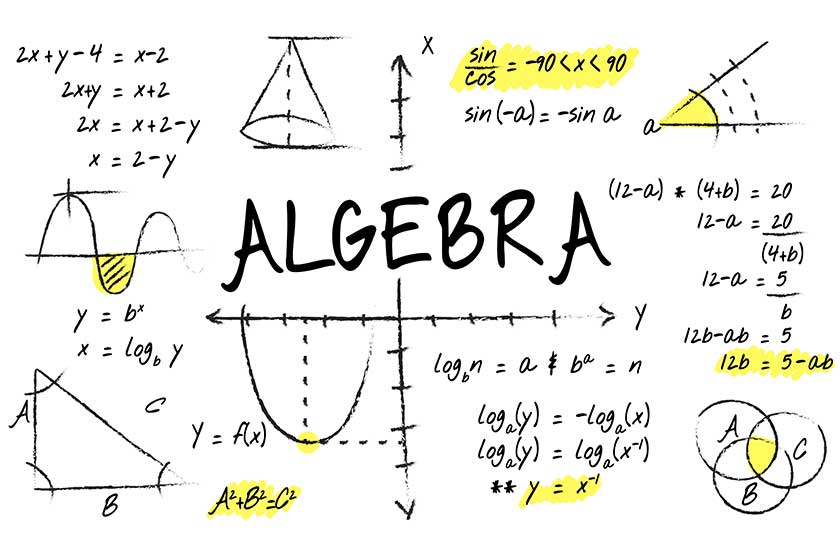
Many students struggle with algebra due to the complexity of its concepts and the skills required to master them. Algebra introduces abstract thinking, symbolic reasoning, and problem-solving that differ significantly from basic arithmetic. Without a strong foundation in math fundamentals, many children find it difficult to transition into algebra. Missteps in teaching methods and a lack of practice often compound these difficulties. Addressing these challenges effectively ensures a smoother learning experience for young students.
Lack Of Understanding In Basic Math Fundamentals
A weak grasp of basic math hinders progress in algebra. Addition, subtraction, multiplication, and division form the basis for solving equations and inequalities. Students who fail to master these basics often struggle when faced with more advanced concepts. Simple errors, such as misunderstanding order of operations, disrupt their ability to follow algebraic steps. Building confidence starts with consistent practice of foundational skills.
Difficulty Grasping Abstract Algebraic Concepts and Symbols
Algebra often introduces abstract concepts that require logical reasoning. Students must understand variables, coefficients, and exponents, which differ from numerical operations. Many find it challenging to visualize or interpret these symbols, making algebra appear intimidating. Teachers can use concrete examples to clarify abstract ideas, bridging the gap between simple math and symbolic reasoning.
Struggles With Word Problems and Translating Them Algebraically
Translating word problems into equations challenges many children. Understanding what a problem asks, identifying key terms, and representing them mathematically requires analytical skills. Students often miss critical details or misinterpret phrases, leading to incorrect equations. Encouraging step-by-step analysis helps children improve their ability to decode word problems effectively.
Insufficient Practice Leading to Low Algebra Confidence
Algebra requires consistent practice to build confidence. Limited exposure to problems results in hesitation and anxiety when attempting new concepts. Regular exercises strengthen problem-solving skills and encourage familiarity with diverse question formats. Providing targeted practice materials ensures students gain the repetition necessary to excel.
Overwhelming Fear of Making Mistakes in Algebra
The fear of mistakes discourages students from attempting problems. Algebra’s multi-step nature often intimidates children, as errors in early steps affect the final result. Creating a supportive learning environment that normalizes mistakes as learning opportunities helps reduce anxiety and encourages persistence.
Misunderstanding the Importance of Algebra in Daily Life
Many students fail to see how algebra connects to everyday life, making it harder for them to stay motivated. Without real-world applications, algebra appears theoretical and irrelevant. Teachers can demonstrate practical uses of algebra, such as budgeting or calculating measurements, to spark interest and engagement.
Ineffective Teaching Methods Hindering Algebra Learning
Teaching approaches that focus solely on rote memorization fail to engage students. Effective algebra instruction requires interactive lessons, real-life examples, and clear explanations. Children benefit from teaching methods tailored to different learning styles, such as visual aids or hands-on activities.
Lack Of Access To Helpful Algebra Learning Resources
Limited access to quality materials affects student success in algebra. Textbooks, online platforms, and tutoring services offer vital support but are not always available. Ensuring access to engaging and diverse algebra learning resources provides students with tools to strengthen their understanding.
Trouble Connecting Algebra With Real-World Applications
Students often view algebra as abstract rather than practical. Relating algebraic concepts to everyday scenarios makes learning more relevant and engaging. For instance, showing how algebra helps in designing games or solving real-world problems enhances interest and comprehension.
Inconsistent Study Habits Slowing Algebra Progression
Irregular study routines delay progress in algebra. Sporadic practice causes students to forget concepts and struggle with new material. Establishing consistent schedules for reviewing and practicing algebra ensures steady improvement and retention of knowledge.
Build Algebra Confidence with NFC Academy’s Accredited Programs
Students of NFC Academy are equipped with the skills and confidence needed to conquer algebra’s challenges. Our structured programs emphasize mastering math fundamentals and developing problem-solving strategies that make complex concepts accessible. Through step-by-step lessons, engaging resources, and real-world applications, we help students build a solid foundation for algebra and beyond.
Our accredited programs are tailored to support both students and parents, ensuring a seamless learning experience from the early grades onward. Whether tackling abstract concepts, word problems, or symbolic reasoning, NFC Academy provides the tools and guidance needed to excel. Explore our programs today and set your child on the path to math success!



